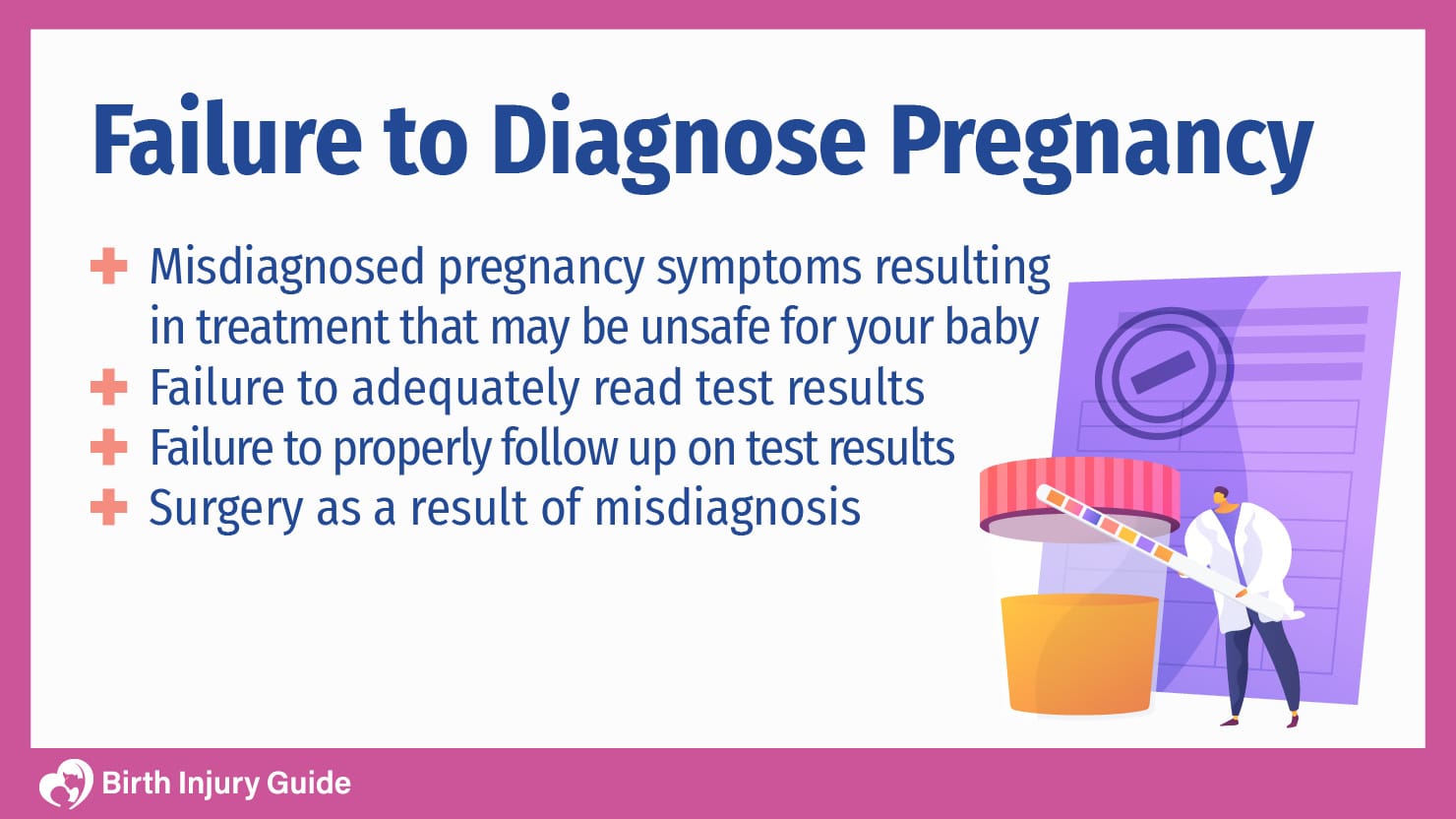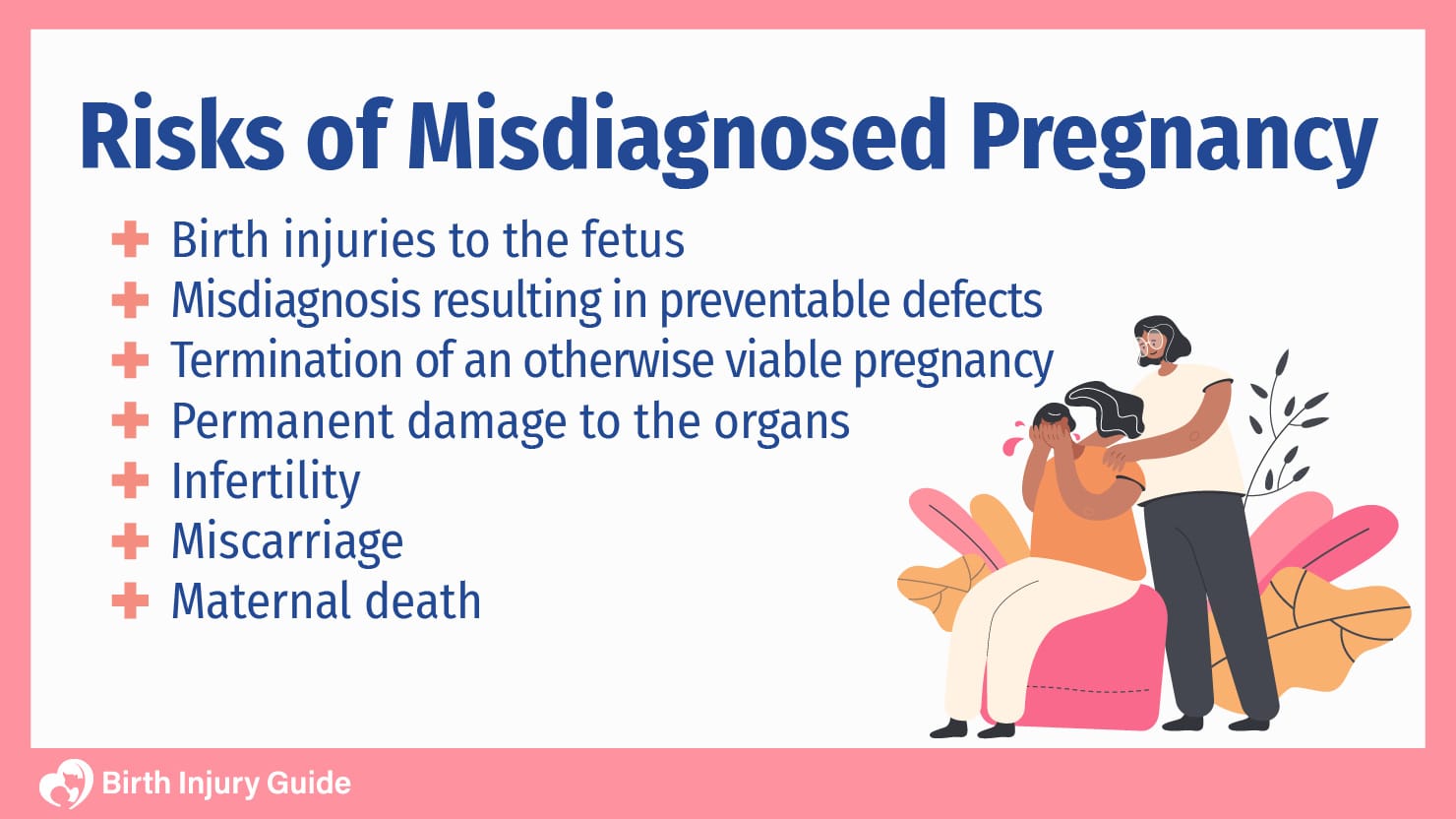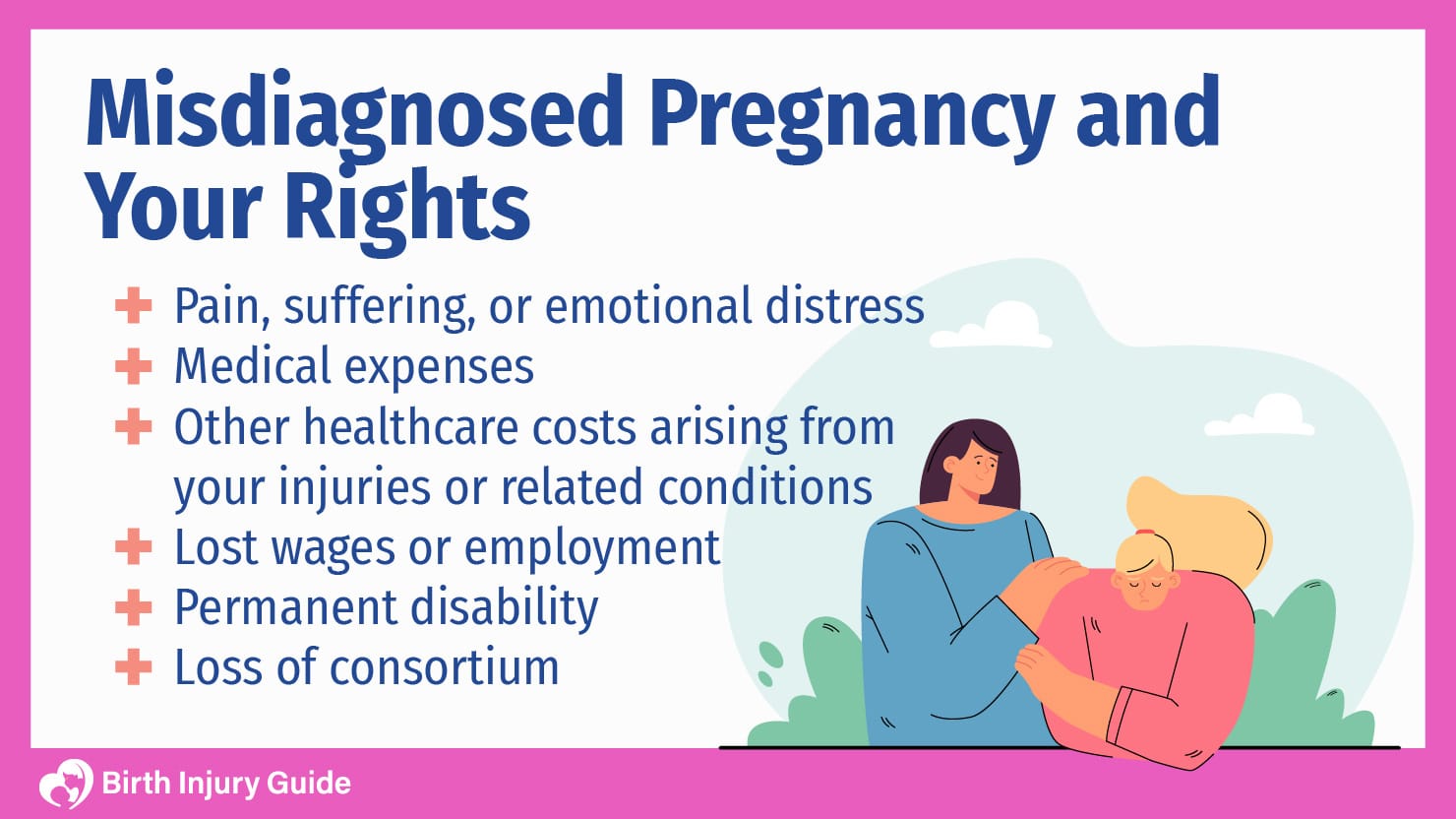
Misdiagnosed Pregnancy and the Dangers of Doctor Negligence
When doctors fail to abide by the standards of medical care that their positions demand, your health and well-being can suffer, and your legal rights may be seriously violated. In this post, we discuss misdiagnosed pregnancy and the dangers of doctor negligence. We cover what can happen if your doctor fails to diagnose a pregnancy, or misdiagnoses a complicated pregnancy, like ectopic pregnancy or molar pregnancy. Misdiagnosing these conditions is dangerous, and you should be aware of your rights and options.
Failure to Diagnose Pregnancy
For some women, finding out you are pregnant is the best news ever. For others, however, it can be devastating if you have taken measures to avoid becoming pregnant. If your doctor fails to perform adequate testing, you may be pregnant without even realizing it. This situation can have a profound impact on your life, and can result in a variety of complications and unfortunate events.
Healthcare providers must discuss your options for birth control or fertility – depending on your desires and health. They must also communicate with you and inform you of any possible complications, side effects, or the risks of becoming pregnant. When doctors fail to diagnose you as pregnant, they may put your health and your baby’s health at risk. Consider the following situations that may constitute medical negligence:

Any of these failings can result in dangerous consequences for you and your baby. Pregnancy is a very delicate time for your body, and you rely on your doctor to make sure that you and your baby are safe and healthy. It is important to address possible complications in early pregnancy to ensure the health of mother and baby.
Misdiagnosis of Complicated Pregnancy
Another situation that may constitute malpractice or negligence is misdiagnosis of a complicated pregnancy, such as an ectopic or molar pregnancy:
What is an Ectopic Pregnancy?
Ectopic pregnancy occurs when the egg is fertilized but implants outside of the uterus. Implantation may occur in the fallopian tubes, on the cervix or an ovary, or elsewhere in the abdomen. Diagnosing an ectopic pregnancy requires a review of symptoms, an ultrasound, and bloodwork. Misdiagnosis of ectopic pregnancies can result in the following:
- Organ damage
- Severely low blood pressure
- Infertility
- Ruptured fallopian tubes
- Shock
- Death
What is a Molar Pregnancy?
Also called hydatidiform mole, a molar pregnancy occurs when a tumor develops in the uterus instead of a fetus. The tumor can present symptoms much like those of pregnancy, but there is no embryo. There are two primary manifestations of molar pregnancy, which are:
- Partial molar pregnancy – Occurs when an egg is fertilized by two sperm, resulting in the placenta becoming a tumor unto itself. Some partial molar pregnancies lead to the growth of a fetus, but most have severe defects or do not survive pregnancy.
- Complete molar pregnancy – Occurs when the egg is fertilized, but contains no genetic material. In this case, the egg cannot grow into a fetus. Instead, the sperm continues to grow itself, becoming a tumor and filling the uterus in much the same way that a normal pregnancy would.
What are the Risks of Misdiagnosed Pregnancy?
Generally, if your doctor follows proper prenatal care guidelines, diagnosing and treating molar or ectopic pregnancies can be done in a routine manner without risk of serious injury or spontaneous termination of the pregnancy (also called spontaneous abortion or miscarriage). Tell your doctor if you believe you are pregnant and experience pelvic pain or vaginal bleeding.
If, however, your doctor fails to follow proper medical standards, the result may be catastrophic for your family.

Medical negligence when diagnosing pregnancy may result in the following:
- Birth injuries to the fetus
- Misdiagnosis resulting in preventable defects
- Termination of an otherwise viable pregnancy
- Permanent damage to the organs
- Infertility
- Miscarriage
- Maternal death
Anytime you have symptoms that may indicate pregnancy, you should contact your doctor as soon as possible. If he or she does not perform tests, or does not follow up with you, you may find it beneficial to get a second opinion.
If you have been injured, suffered the loss of a child, or experienced other harm due to your doctor failing to diagnose, or misdiagnosing a pregnancy, you may find it beneficial to also seek the guidance of a medical malpractice or birth injury attorney.
Understanding Your Legal Rights
You have the right to quality medical care that follows certain standards of care. If your doctor deviates from those standards and you are injured as a result, you may have grounds to file a medical malpractice or birth injury lawsuit against that doctor. The type of case you are able to file, as well as the amount of damages you can pursue depends on the facts of your case.
These cases allow you to pursue damages for your injuries and losses, including:

Your ability to seek any of these damages, or others not listed, will depend on your case. A medical malpractice or birth injury attorney can help you determine what damages you can pursue.
Getting Help after a Misdiagnosed Pregnancy
Once you have determined that you want to pursue a medical malpractice or birth injury case, the next step is finding an attorney you can trust to manage your case. Filing a lawsuit is often a lengthy, emotional experience, so it is important that your chosen attorney is someone you feel comfortable with, and confident in, to guide you through the lawsuit process.
The lawsuit process entails several independent processes, and may vary slightly depending on your state. In general, you can expect the following in the lawsuit process:
- Gathering evidence (medical records, billing statements, insurance claims, witness information)
- Interviewing witnesses (doctors, nurses, medical staff, family members, friends, etc.)
- Expert witness testimony
- Researching applicable standards and laws
- Filing legal documents (interrogatories, motions, appeals, etc.)
- Negotiation (if a settlement is proposed)
- Trial before a judge and jury
If you have questions about filing a medical malpractice or birth injury lawsuit, or want to learn more about your legal rights, please contact us for a no-obligation case review. Our birth injury and medical malpractice attorney can help you explore your options.

